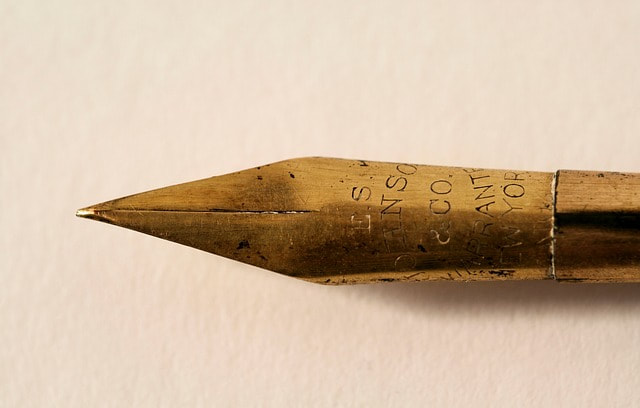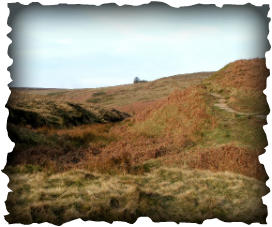Top Writing Links1. Romance Writers of America - If you want to write romance of any variety, here is where you start. Dues are not cheap, true, but it costs a lot less than college writing courses and you get to learn from those who are actually writing novels for a living. Huge reservoir of knowledge, connections, and the latest industry updates for go-getters. IMHO, RWA is a must. They recently opened an aggressive education program called RWA University that's included in price of membership.
2. Publishers Marketplace - $20/mo but the best research tool available to learn behind the scenes what editors are buying and ranges of how much they're paying, which agents are selling. A real-time look at current trends based on data, not hearsay. 3. Randy Ingermanson, Rocket Scientist (for real!) turned novelist, he's been called America's Mad Professor of Fiction Writing. He's the inventor of The Snowflake Method, a design model based on fractals. Soooo cool. 4. The Easy Way To Write, by Rob Parnell. I found (specifically) his Novel Writing course very useful. Excellent at keeping it simple and teaching you how to write faster. At under $50, it's one of the few sources that deals well with the mental aspects of writing, such as motivating yourself, dealing with stress, negative beliefs and myths about writing that get in the way of the process. 5. Free Articles from Romance Fiction Factor. - A little dated, but all from reputable authors. Especially good are Dr. Vickie Hinze's articles. |
Past Writing Articles1. So, You Want To Write A Novel
2. Creating an Environment Conducive to Writing 3. Advice For Aspiring Writers 4. Designing Your Novel's Premise 5. Prep That Book! 6. Writing the First Draft, Or "The Ugly Duckling" 7. On Revision 8. Ask the Author - Q & A On Various Topics Disclaimer: These articles were produced over the past few years and reflect how I saw things at the time, but I freely admit that my views on writing continuously evolve and probably always will. So take that into consideration when reading :) Most points generally comport with my current views, but I learn more all the time as I change and grow. That's the beauty of studying an art form--you're never really "there" yet. Everything is a continually unfolding process. Whatever works for you is what matters. Enjoy! ~GF |
|
Fill your paper with the breathings of your heart. ~William Wordsworth "The best time for planning a book is while you're doing the dishes."
~Agatha Christie "The road to hell is paved with adverbs." ~Stephen King "It is impossible to discourage the real writers - they don't give a damn what you say, they're going to write." ~Sinclair Lewis |
Favorite Writing BooksRay, Robert J. THE WEEKEND NOVELIST. Dell Trade Paperback, 1994. (This book sat on my shelf for years before I realized what a fab little gem it is. Unfortunately, it’s out of print. Check your library and used bookstores to find a copy. Maybe they'll issue it as an ebook...) Swain, Dwight. TECHNIQUES OF THE SELLING WRITER. University of Oklahoma Press, Norman, OK. 1965. (The grand-daddy of all writing books, a classic. Some of his examples are dated, but all of his concepts are spot-on. A must-have.) Bickham, Jack M. WRITING THE SHORT STORY: A HANDS-ON PROGRAM. Writer's Digest Books, 1994. (Bickham was a student of Swain's. Superb, insightful, methodical. Step-by-step program of how to tackle the huge task of writing a complete work of fiction. Note: though it refers to short stories, 99% of the concepts apply perfectly well to novels, too.) Here are a few more in no particular order that are also top-notch, and which I use all the time. Feel free to print this out and take it with you to the bookstore or library. Trottier, David. THE SCREENWRITER'S BIBLE: A COMPLETE GUIDE TO WRITING, FORMATTING, AND SELLING YOUR SCRIPT. Third Edition. Silman-James Press, Los Angeles, 1998. (Applies to novels as much as screenplays. Especially good for a very simple breakdown that will help you gain an understanding of structure, high concept, and methods for building characters.) Vogler, Christopher. THE WRITER'S JOURNEY: MYTHIC STRUCTURE FOR WRITERS. 2nd Edition. Michael Wiese Productions, Studio City, CA. 1998. (I would consider this an essential, too. Vogler condenses the work of the cultural anthropologist, Joseph Campbell, applying ancient mythic structure to modern storytelling in the heroic tradition.) Zuckerman, Albert. WRITING THE BLOCKBUSTER NOVEL. Writer’s Digest Books, 1994. (Advice from a big-time agent with a foreword by his client, Ken Follett. Especially good insights into the revision process.) McKee, Robert. STORY: SUBSTANCE, STRUCTURE, STYLE, AND THE PRINCIPLES OF SCREENWRITING. ReganBooks, 1997. (For the advanced fiction-writing student. Applies to novels and all forms of storytelling as much as screenplays. Also available on audiotape. Bold, eloquent, and occasionally a bit of a windbag, McKee is quite brilliant, all the same.) Dibell, Ansen. PLOT. Writer’s Digest Books, 1988. (Covers all the basics in an interesting and orderly way.) |
Policy Links
Privacy Policy
Cookies Policy
Terms of Service
Privacy Policy
Cookies Policy
Terms of Service
© Gaelen Foley 2023


